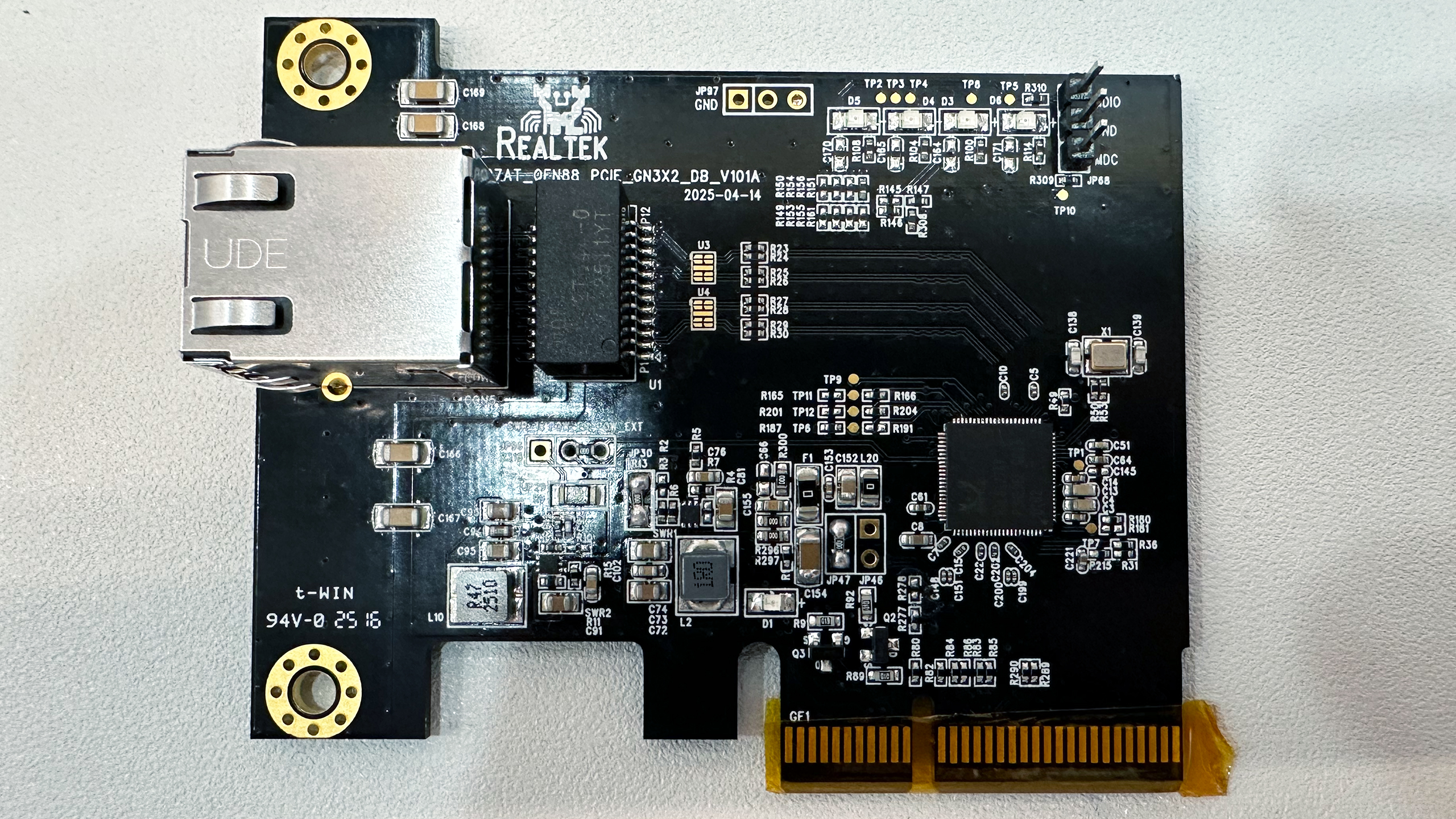PNG has been updated for the first time in 22 years — new spec supports HDR and animation
-
Goodbye gif hello png?
gif almost got replaced by mp4 anyway during the early imgur era
-
What's wrong with webp? It support animation, lossless compression, lossy compression and transparency. Animation has a smaller size than gif.
I hate that you can’t right click copy images, it always wants to share as a link. Plus some other issues when sharing, but it’s just such a pain in the ass.
-
Why are they trying to make it happen, and why it no work? Is JXL better than PNG? Maybe I need to do some research to better learn the difference
JXL can do lossy images (like JPEG) and lossless ones (like PNG), and on average it'll produce smaller file sizes than both (While beating JPEG quality wise). The killer feature is that it can do lossless recompression of existing JPEG files and shave off about 20% of the file size, and it's reversible so you can turn those JXL files back into JPEG images for existing software.
The downside is that it was created by Google Research (among others), but the Chrome team made AVIF instead and decided that's what they'd support and nothing else.
At least Safari supports it.
-
Yes? Did you?
Example:
AVIF
AVIF is an image format developed by the Alliance for Open Media. AVIF was designed by the foundation to make up for the shortcomings of other image codecs, including PNG, GIF, and WebP.
AVIF is generally smaller in size than both WebP and PNG. AVIF supports animation while PNG does not.
AVIF is generally smaller in size than both WebP and PNG. AVIF supports animation while PNG does not.
The lossless mode in AVIF is so bad that a BMP in a ZIP file produces smaller results.
Which makes sense, as it doesn't actually have a dedicated lossless mode (like WebP does), the encoder is just to not quantise the video data it produces.
-
2029 Headline: Worlds largest data breach caused by zero day exploit in popular PNG 3.0 renderer
the payload was reportedly embedded in an animated image of the attacker repeatedly flicking his left testicle
-
Right there's actually like a select few applications that support it which is cool, but so many get confused when they see an apng file with frames.
Probably still more supported than Webp and Webm
-
Animated PNG has been trying to be an extension to the PNG spec for 20+ years.
Yep, it was one of the ways to have an animated avatar on BB forums.
Most recently, I have seen them being used in animated chat stickers (like on Signal).
-
This post did not contain any content.
Would this be the Gif killer? If PNG can contain a relatively similar frame count & time limit but with marginally better image quality it just may.
-
This post did not contain any content.
It's great that Papua New Guinea is still receiving updates /s
-
I hate that you can’t right click copy images, it always wants to share as a link. Plus some other issues when sharing, but it’s just such a pain in the ass.
That’d be the browser’s (or whatever app you’re using) fault, not the format. I guess you could choose to hate it for poor support.
-
2029 Headline: Worlds largest data breach caused by zero day exploit in popular PNG 3.0 renderer
the payload was reportedly embedded in an animated image of the attacker repeatedly flicking his left testicle
That was because they added 'shorts' and friend-lists to it.
-
Right, and it depends on what "quite off target" means. Are we talking about greens becoming purples? Or dark greens becoming bright greens? If the image is still mostly recognizable, just with poor saturation or contrast or whatever, I think it's acceptable for older software.
So it depends on the specific HDR encoding used, Rec2020 is the most common ones you'll see (It's meant for "pure" setups, i.e. where the source and output are tightly linked, e.g. gaming consoles or blu-ray, or so) and the raw data won't look great. While something like HLG (Hybrid-Log Gamma) is designed for better fallback (As it's meant for TV broadcast, where the output device is "whatever TV the user has"), so should just look dimmer.
This is a HDR screenshot I took of Destiny 2, which uses Rec2020, tone mapped to SDR

And here's the raw screenshot data from before tonemapping.

If the second image had all the right HDR metadata, and the viewer supported it properly, then both images would match.
-
JXL can do lossy images (like JPEG) and lossless ones (like PNG), and on average it'll produce smaller file sizes than both (While beating JPEG quality wise). The killer feature is that it can do lossless recompression of existing JPEG files and shave off about 20% of the file size, and it's reversible so you can turn those JXL files back into JPEG images for existing software.
The downside is that it was created by Google Research (among others), but the Chrome team made AVIF instead and decided that's what they'd support and nothing else.
At least Safari supports it.
lossless recompression of existing JPEG
Uh… how does it make a JPEG lossless? Or is it lossless in that it makes a JXL out of a JPEG without affecting the original JPEG quality (i.e. no further loss beyond JPEG's)?Being able to turn JPEGs into JXLs and JXLs back to JPEGs is cool, though
What's with the AVIF thing? Yet another I am unfamiliar with (all I know about image formats is JPG = worse quality, PNG = better quality, GIF = animated (and something WebP. Idk much about that one either))
Also, in my research, I've found something about the distinction between lossless JXL vs lossy JXL. Seems like you wouldn't be able to tell if the image is lossy or lossless just from it being a JXL
-
lossless recompression of existing JPEG
Uh… how does it make a JPEG lossless? Or is it lossless in that it makes a JXL out of a JPEG without affecting the original JPEG quality (i.e. no further loss beyond JPEG's)?Being able to turn JPEGs into JXLs and JXLs back to JPEGs is cool, though
What's with the AVIF thing? Yet another I am unfamiliar with (all I know about image formats is JPG = worse quality, PNG = better quality, GIF = animated (and something WebP. Idk much about that one either))
Also, in my research, I've found something about the distinction between lossless JXL vs lossy JXL. Seems like you wouldn't be able to tell if the image is lossy or lossless just from it being a JXL
WebP is the same, it's got a lossy mode (VP8) and a lossless mode (Which is more limited than PNG, but beats it where it overlaps). But to make it more complicated the lossless mode also has lossy processing modes, where it alters the image first to achieve smaller output sizes.
People have a long habit of turning JPEG files into PNG files, the file extension won't help you there. They also could have reduced the colour depth or resized it, all lossy operations. All it really tells you is that it can have an alpha channel.
As for AVIF, personally I don't like the format, it feels like an "open media" (But still patented) version of HEIF to oppose Apple. Like WebP it makes the (baseless IMO) assumption that a format designed to encode motion data is better at encoding still data than a format designed to encode still data. It's got all the limitations of a video format (It's got a max resolution, only supports 12bit images, and no progressive decoding), and they left out all the enhancements from WebP (The dedicated lossless mode, "lossless AVIF" files are huge and the last I checked badly supported, so nobody actually used them, and they just called very high quality settings "lossless")
A team inside of Google was working on WebP2 around the same time, that used AV1 but actually added the useful stuff like efficient lossless encoding, it got killed too in favour of AVIF.







